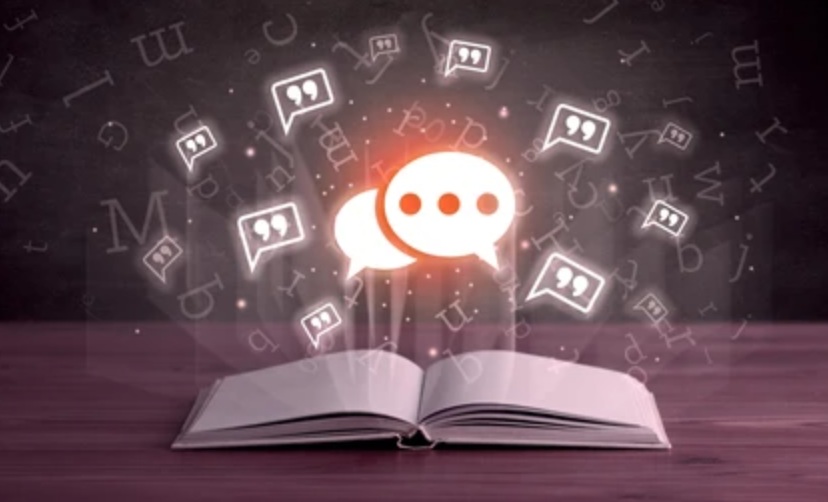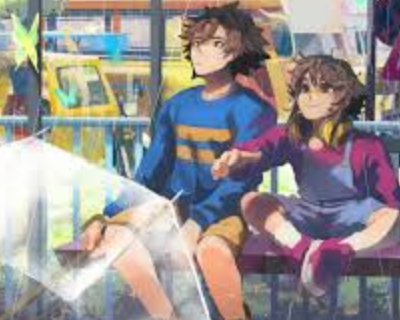I Despise Ads: Pros and Cons of Online Book Communities
Despite what most teens think, text messages are not the most ancient form of recorded knowledge. Books are. People read books for various reasons, such as to unwind, escape reality, or have fun. These sacred books have recently been mixed with social media, and the writing community has changed. Now, we have things like BookTok and Bookstagram, where people post videos about books, and communities start to pop out. Social media has become a place where people talk about their love for reading and writing. But all good things must come to an end. The darkness of social media slowly began to corrupt the once-bright community. Demands for more content from writers force them to deliver less than subpar writing. In addition, readers also have a role as customers to either promote or bash books or authors. These two positions were given because of social media and the growth of the writing community. I’ll give you insights and explain how social media has affected the experience of writers and readers. Keep all this in mind when you scroll through social media to find the next big thing.
1. Readers: I Bought An Apple But Got An Orange
When trying a new restaurant, you look at photos to see what looks good. Yet what happens when you get the food, and it looks nothing like the photo? Do you ask for something else? Or do you stick it out, eat, pay, and never return? Now more than ever, readers are feeling clickbait on social media, something that gets attention online but might not be worth actual time and money. Many authors promise certain tropes, such as finding family or enemies to lovers, to get readers’ attention and buy their books. While it’s great to have tropes in the book, a book doesn’t need one to be grand. As readers become more addicted to certain tropes and how they’re portrayed, they’re more likely to choose a book with these similar tropes. This leads to promising advertisements that get people’s interest. However, when people buy and read the book, they feel blindsided by the authors’ deceitful promises, raising more credibility issues. The most popular scandal of this broken trust was in Alex Aster’s Lightlark. She promoted Lightlark with specific plots and compared it to famous books like “The Hunger Games.” Yet when opening the pages, the readers were disappointed that it never met their expectations with “poor” writing.
YouTuber Thee Great Gatsby does famous reviews on books, shows, and even movies. Her video “Lightlark – How the Marketing Failed This Novel and Tanked Alex Aster’s Goodreads Reviews” further explains Alex Aster’s false promises’ effects on her book and readers.
Thee Great Gatsby gives an unbiased perspective of how Lightlark became BookTok’s first big scandal. Although it’s been a year since the book was published, it’s essential to recognize that you should not judge a book by its cover. Alex Aster is still a famous author who made her book into a series. Even though many found her books unenjoyable, you might feel different. This is okay. Everyone has a right to their opinions and likes. There are still other books to fish around for. I despise these false advertisements as they show how greedy an author is in getting views and money, which don’t reflect how an actual writer is. In my opinion, with the growth of social media, more people will catch on to false advertisements. If this grows, people may shy away from social media to find books, an excellent place for growing writers or curious readers. This is still a growing issue, but with the Lightlark scandal, people have seen trying to stay true to what’s actually in their books. As always, take what you see online with a grain of salt and do your own research.
2. Readers: Finding The Needle In The Haystack
Although social media algorithms mostly recycle popular books, some lesser-known authors are still getting attention. Many of them are lesser known because they self-publish their books. This means they don’t have any agent to advertise their book and lack the funding to do so themselves. Joan He, for example, is an indie author who self-published her book Strike The Zither. It’s success started slowly, but Strike The Zither soon became a New York Times bestseller. Joan He made this all possible by posting videos and reels about her book. She reached a bigger audience with social media than before as people started buying her book. I enjoyed the book and would recommend it to anyone who likes history, specifically The Poppy War by R.F. Kuang.
People may or may not want certain books, but as everyone has different tastes, they still get to expand their palette. This means being open-minded and trying new genres of books. You don’t have to buy the book to support the author. Usually, to find these books, I recommend typing “unpopular books” into your search bar. This is where you can get others’ opinions before you go and try to find the book. You can even find some unique books on YouTube. We all have access to libraries we can visit and explore. One like or comment can change that author’s day for the better. Even spreading your interest by word of mouth or commenting on social media is enough. Books are meant to be enjoyed; most writers attempt to do that.
3. Readers: I Need All A+’s And Nothing Less
Like every social media, there are trends and challenges. It’s meant to be silly and fun, but some run a bit deeper than we give it credit for. Societal pressure is very real and dangerous. A recent social media challenge is reading several books in a year. The most popular is the A to Z Book Challenge, which involves reading a hundred or more books in one year and organizing them alphabetically. Not to imply that challenge participants didn’t put some time and effort into reading a hundred book, but how well did they really read them? This short clip captures it all.
This comment highlights readers’ struggle to keep up with social media. Being a reader isn’t cheap, as hardcover books in Barnes & Noble are thirty dollars. However, the concept of buying books just to read through them so fast is a mistake. It makes the book feel like a one-night stand that you’ll never think of again because of how quickly you went through it. Sometimes, you must take your time to understand a book’s meaning or enjoy it fully. Whether for a quick relaxation or a deep read, a book’s purpose is to impart knowledge to readers.
Now, we can’t let readers take all the glory. Although some of us can barely write a sentence without autocorrect, a writer’s experience differs greatly from that of a reader, who has similar expectations from social media. As there are always two perspectives, we must step into a writer’s shoes. Though the shoes are bigger and broader, it’s still important to understand the role of writers in social media as well.
4. Writers: Phone A Friend From Ireland
You’re a new kid at school with no friends. You walk into lunch without a place to sit until some good samaritan invites you to sit with them. Suddenly, you feel cozy inside because you found a place to sit. This is exactly what the writing community strives for—a place where everyone feels welcome and happy to explore their interest in a safe environment. Social media has given writers a platform where they can interact with each other. You can join several different groups, whether in person or online. Many people connect through Discord, where they host small meetings, chat about their interests, or get advice from other writers. Although it seems like a tight-knit community, people don’t have to stay in the group chat constantly or can even leave if they realize it wasn’t for them. This is an excellent opportunity to get out there and make lifelong connections with others, all while being able to stay in bed. Social media made these long-distance friendships feasible.
5. Writers: One Man’s Trash Is Another Man’s Treasure
The role of a reader is different from that of a writer. Readers read in a straight line, y=mx+b, from beginning to end. Writing is a process of ups, downs, backward, and forwards, the complete opposite of the reading experience. Writing takes time, and readers should acknowledge this when reading. Yet you see people commenting for more content or complaining about how dull a book is. Alongside the rise in AI, people can now have a book written for them with a click on a computer. The appreciation of the art of writing is at risk because readers don’t realize the depth of writing. With social media showing the ‘perfect’ lives of writers, it translates to others thinking that being a writer isn’t demanding or challenging. In reality, it’s extremely hard. The thoughts, emotions, and effort put into writing go unnoticed. This link shows an accurate writing process and how getting work published differs from the simple linear direction many people think.
As explained in the short, people expect writing to be straightforward when it’s not. These preconceptions hurt authors and pressure everyone to complete a long and laborious process in a span of months. It seems easy in theory, but like it’s said, it’s only in theory. The reality is that some authors put their blood, sweat, and tears into their writing for others or themselves. Their work is out there being constantly scrutinized and judged. That’s why the rule of thinking before you speak should also apply to social media. People shouldn’t comment horrible things about another person’s work when they wouldn’t say it to the person’s face. Being considerate of others is basic human decency that many ignore when it comes to social media.
6. Writers: The Journey Is Rough, But Your Friends Are There
The author’s journey is more accessible and helpful than ever. People can easily ask for help online and receive great responses in addition to recording their experiences. Many writers want to see how far they’ve come. This can mean posting a picture or video online with visible timestamps. People are more receptive to this type of content as it makes authors feel more human and not a literary genius who knows everything. Some writers just like helping others in any way they want. You can check out Ana Neu’s Spotify podcast below. She’s one of many writers who try to help others in any way they can.
With social media, self-publishing has become more popular. Some people can’t afford the traditional way, which doesn’t reflect how rich and promising their books are compared to other famous works. With social media’s help, writers can promote their works to readers worldwide. They attract new customers and people get to read something fresh. Also, people can boost their business and support writers’ growth through social media. Everyone has something to say, but it’s about how you say it. Money or funds shouldn’t stop someone from reaching their dreams; social media has made that possible.
I could talk about this for hours, but there aren’t enough hours in a day for that. I hope you consider these points the next time you pick up a book recommended on social media. Remember that books are meant to be enjoyed by the individual, not the collective. As social media gains more influencers, it’s become easier to be swayed. However, it’s essential to hold on to your own opinion. All that matters is whether you like it or not. Don’t let others tell you what to read or not, and don’t do the same. And like Frederick Douglass said, “Once you learn to read, you will be forever free.”










